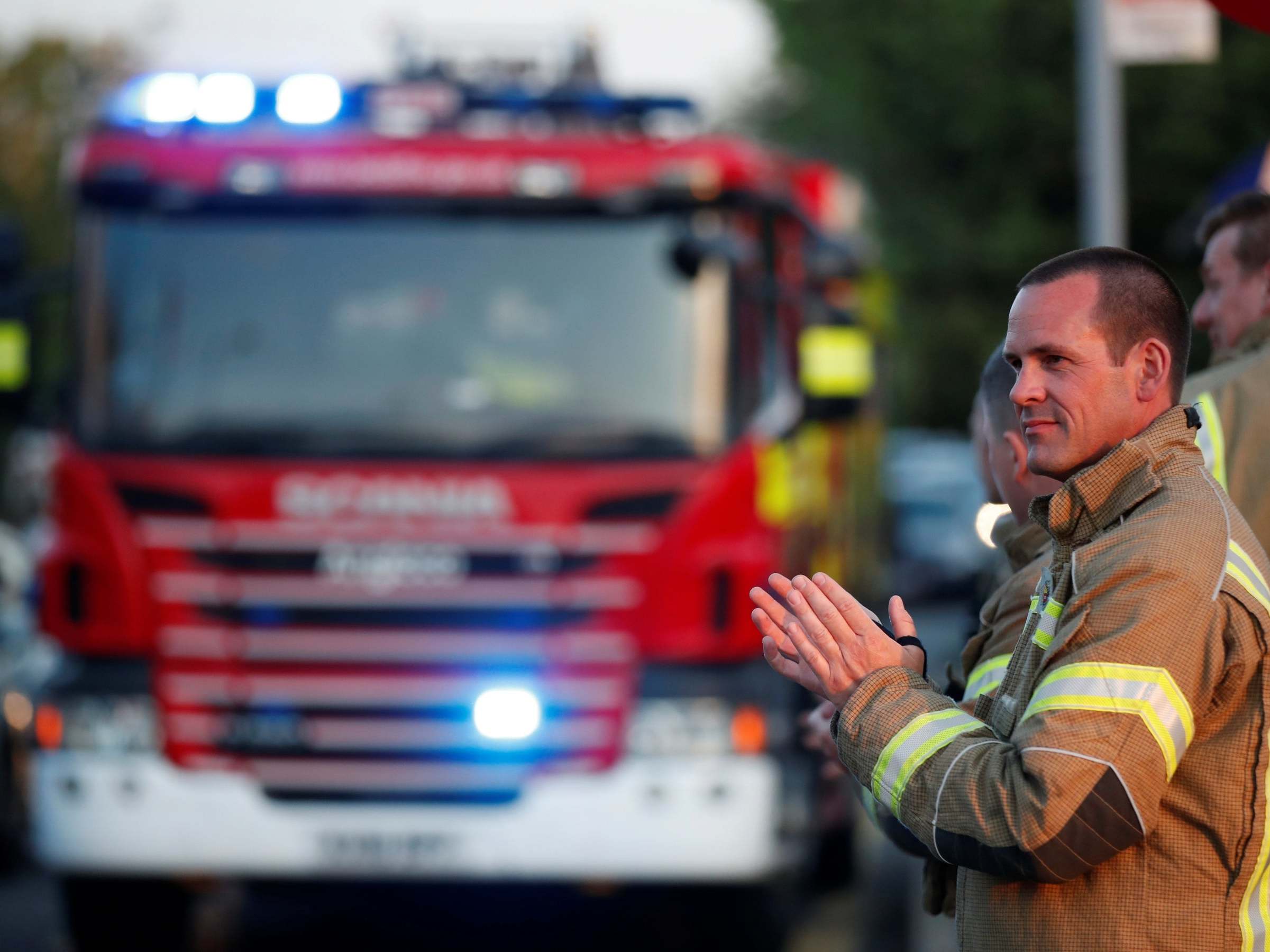Coronavirus: Fire services ‘dangerously underprepared’ with last government pandemic advice issued in 2008
Exclusive: Government ‘ignored warning after warning’ through years of austerity, union says
Fire and rescue services had not been given government guidance on reacting to a UK pandemic for 12 years before the coronavirus outbreak, documents have shown.
The Fire Brigades Union (FBU) accused ministers of leaving firefighters “dangerously underprepared” and ignored repeated warnings through a decade of austerity.
Downing Street and government ministers have repeatedly claimed that the UK was “fully prepared” for a new outbreak, but evidence seen by The Independent calls that into question.
The last specific guidance on pandemics was issued to fire services in 2008, and a national framework that governs their duties has never explicitly included responses to a public health emergency.
Warnings over the gaps date back to 2010, when the Audit Commission urged officials to prepare for “sudden disruptions” that could be caused by flu outbreaks.
In 2013, ministers were told that there was “no evidence” that services were planning for major foreseeable risks.
An assessment of the current Integrated Risk Management Plans (IRMPs), drawn up by 50 regional fire services, shows that 60 per cent do not mention “pandemic” or “flu”, and none provided detailed plans.
The FBU said the lack of planning meant services had to negotiate their responsibilities during the coronavirus crisis “from scratch”.
Firefighters are currently moving dead bodies, delivering food, supplies and medicines and driving ambulances to support the NHS.
At least 2,600 personnel have so far fallen ill or had to self-isolate because of coronavirus, although the National Fire Chiefs’ Council has said staffing remains above minimum levels.
Matt Wrack, general secretary of the FBU, said: “Ministers have ignored warning after warning from across the public sector about their failure to plan for an event like the coronavirus pandemic – and the fire and rescue service is no different.

“By recklessly cutting funding for frontline services, the government has pushed services to breaking point, wiping out the capacity needed for large-scale emergencies and undermining brigades’ business continuity capabilities.
“With near-zero guidance from the government, our fragmented, localised fire and rescue service has been left dangerously underprepared.”
The shadow home secretary, Nick Thomas-Symonds, said ministers must explain why insufficient planning was in place and “what they will now do to fully protect and resource these vital services in future”.
He added: “These revelations appear to again show that in yet another area, our country did not go into this crisis with the necessary resilience.”
Between 2007 and 2011, a Fire and Rescue Service Health and Safety Group that included representatives from the FBU, chief officers, councils and the Health and Safety Executive (HSE) and Fire Service College.
The union said it “discussed pandemic flu as a priority during this period”, but the work ceased as the new coalition government implemented its austerity agenda.
“We came up against the same culture of complacency and disinterest in long-term resilience planning when we warned about building safety and high-rise fire preparedness before Grenfell,” Mr Wrack said.
“This pandemic has shone a light on the abject failure of a decades-long government approach to public services. We must not go back to normal after this.”
Fire and rescue services are legally required to prepare for national emergencies and even before coronavirus, flu pandemics were in the most severe category of the National Risk Register of Civil Emergencies.
The UK’s separate Influenza Pandemic Preparedness Strategy obliges all emergency services to “ensure continuation of emergency provision and support to the wider response to a pandemic”, warning that “non-emergency functions could be affected by the need to redeploy due to staff absence levels”.

But no edition of the Fire and Rescue Service National Framework, published by the Home Office, lists pandemics as a strategic priority for fire and rescue services.
The document says it provides “overall strategic direction to fire and rescue authorities” and makes suggestions on how they spend their budget while ensuring “the efficient and effective use of their resources”.
The most recent version, published in 2018, says fire services must “make every endeavour to meet the full range of service delivery risks and national resilience duties and commitments that they face”.
In January 2008, the Department of Health published guidance on pandemic flu for fire and rescue services, which included advice on the use of personal protective equipment (PPE) and highlighted the impact of staff shortages.
It did not contain information on what planning should be undertaken or mention testing strategies, and the document was not updated for 12 years.
Only around 40 per cent of fire services include pandemics in their own risk-management plans, and the 2019 report by HM Inspectorate of Fire and Rescue Services warned of “unjustifiable variation” in risk planning between regions.
The report found that half of the services inspected were not properly testing or updating their plans for continuing work “during an unexpected incident”.
The FBU, which has submitted evidence to the Home Affairs Committee inquiry into coronavirus preparedness, said efforts were undermined by budget cuts.
Since 2010, it calculated that services have lost 11,500 firefighters and control staff across the UK, cuts driven by a real-terms spending cut of 28 per cent.
A government spokesperson said: “Fire and rescue services have well-tested contingency plans for all scenarios including pandemics.
“All critical services have been maintained throughout this crisis alongside 4,000 firefighters helping paramedics and delivering food or medicines to the vulnerable.”
Join our commenting forum
Join thought-provoking conversations, follow other Independent readers and see their replies
Comments
Bookmark popover
Removed from bookmarks